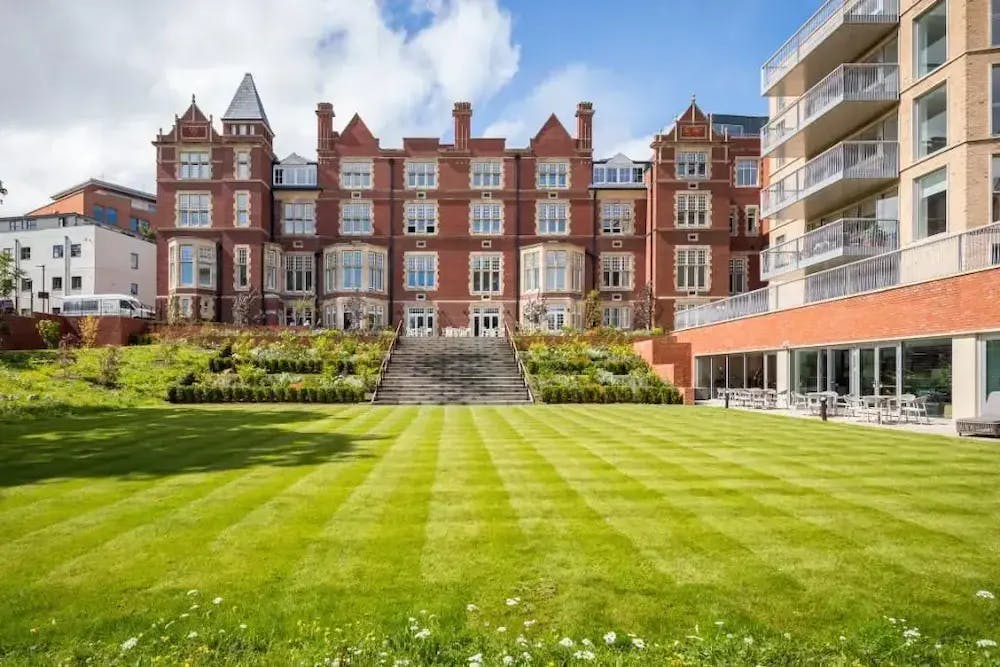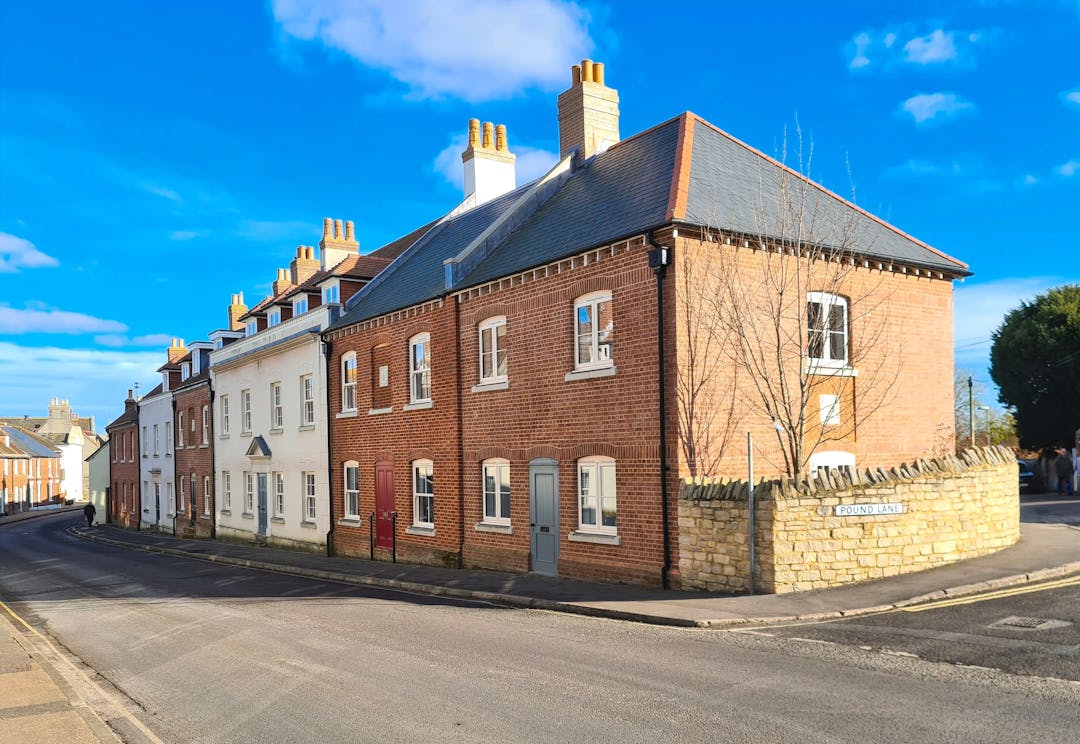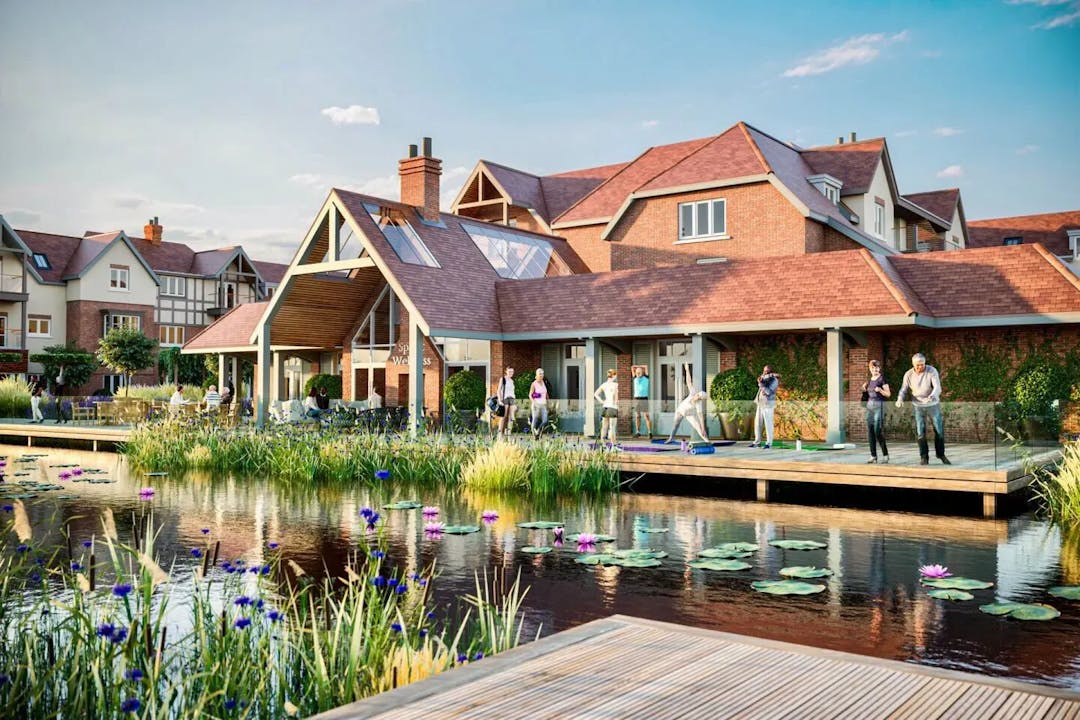Are Retirement Homes a Good Investment?
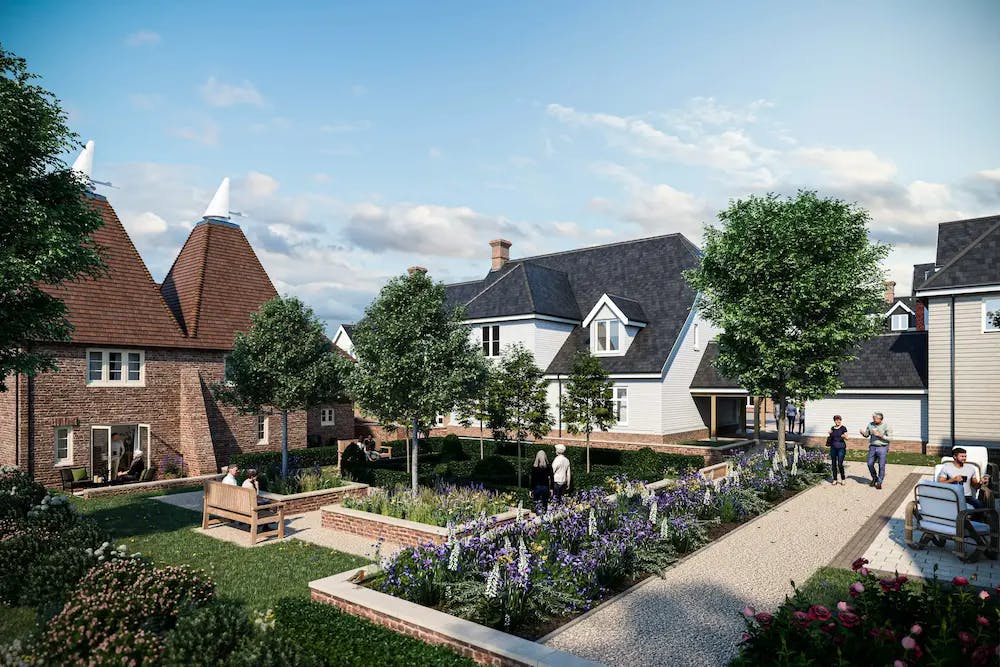
Estimated Reading Time: 10 minutes
The retirement housing market continues to receive substantial investment as more and more retirees put their money into these kinds of properties.
Among other factors, the popularity of retirement homes comes from the fact that they’ll provide lasting benefits for your next of kin.
Here, we’ve looked at whether retirement homes are a good investment and what the future of UK retirement living looks like.
Where would you like to live?
Browse the best retirement homes near you through Lottie.
In this article on retirement home investments:
- Types of retirement properties
- Costs to buy retirement homes
- Advantages of investing in retirement homes
- Disadvantages of investing in retirement homes
- Selling a retirement home
- Are they a worthwhile investment?
- Inheriting a retirement home
- Renting a retirement property
- How to find an investment retirement property
Types of Retirement Properties
There are a few different types of retirement properties to consider, including:
Apartments - Many retirement homes contain apartments, including Highfields in Surrey
Bungalows or cottages - Debden Grange in Saffron Walden, Essex contains 17 cottages
One, two and three-bedroom homes - Matcham Grange in Harrogate offers a variety of one and two-bedroom homes
Retirement flats to rent and buy
Below, we’ve covered the different options for retirement living.
Retirement Villages
Retirement villages are an increasingly popular type of retirement living property that mix houses, retirement bungalows and apartments in desirable village settings, often complete with picturesque rural backdrops.
These villages provide a communal environment for residents through social events and private facilities that can include gyms, spas, health centres, libraries, restaurants, pubs, community halls and even hairdressers!
They’re one of the most luxurious ways for retirees to enjoy a fulfilled later life while still having your independence promoted.
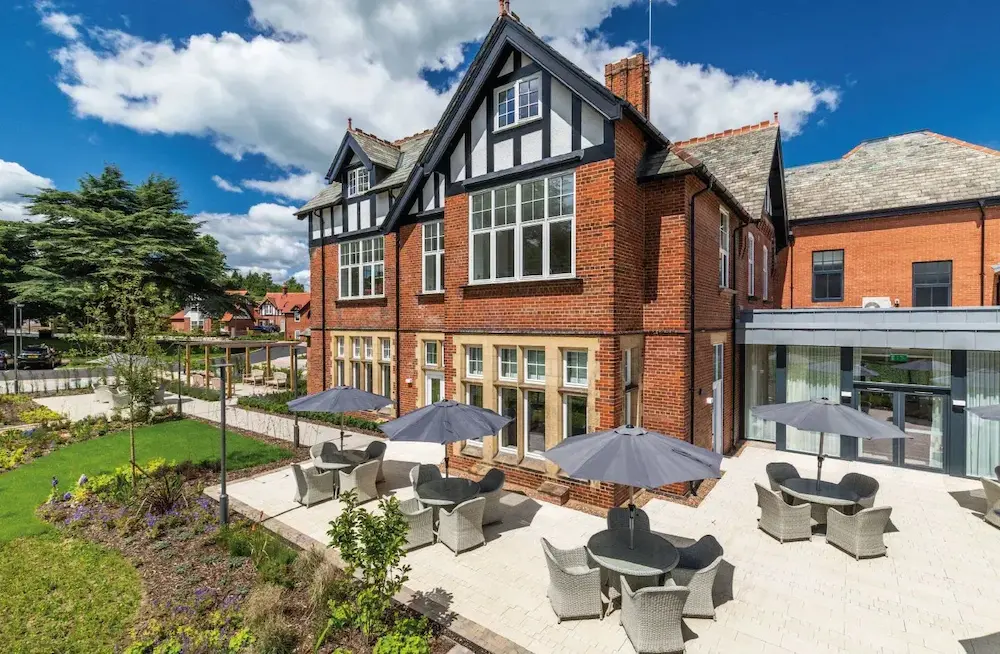
Sheltered Housing
Sheltered housing encourages residents to stay independent, while still providing support and care as and when it’s needed.
Sheltered housing contains private units with some shared facilities (though usually not as many as a retirement village) and a warden - much like that of warden-controlled housing.
Assisted Living
Assisted living is fairly similar to sheltered housing, with residents also able to live independent lives. An assisted living home could be an apartment, bungalow or small house. Just like with other retirement complexes, larger sites offer desirable onsite facilities like shops, restaurants and hairdressers.
Assisted living facilities differ as they’ll usually have designated support staff onsite or nearby 24/7, in order to cater to residents’ needs. Properties are also fitted with monitored alarm systems.
We can help you find the perfect UK retirement home. Use our free service to filter by location, price, the facilities available, purchase type and more!
Costs to Buy Retirement Homes
Rightmove research from June 2021 shows that the average asking price for a new-build retirement home was £472,281, while the average asking price for a resale retirement property was £285,445. Resale properties tend to be cheaper as there’s normally a smaller number of potential buyers.
There are a few other costs you should know about. We’ve gone through these below:
Management fees - This covers just about every service that goes into running retirement properties, including maintaining communal facilities and green spaces, site security and support for residents. It also covers the management team, whose job it is to ensure residents' needs are quickly met. This cost will vary from village to village (get in touch to find out the exact amount) but will usually fall somewhere between £400 and £700 per month
Ground rent - Most retirement properties are leaseholds (meaning that although you own the building, you don’t own the land it sits on). This means you’ll pay an annual fee known as ground rent. This varies from provider to provider but normally costs around £200 to £300 a year
Contingency fees - These go towards large and often unanticipated costs, such as sudden repairs to communal areas (e.g. if damage occurs that quickly needs rectifying)
Living costs and bills - Don’t forget that you’ll need to budget for living expenses. Along with this, bills such as gas, electricity, water and wifi are sometimes required to be paid, though this varies from village to village
Care costs - Retirement homes can offer an excellent level of care and support. Though not free, it’s usually more affordable than that of a care home, with the average weekly cost of a UK residential care home being £704 (and £888 for a nursing home per week)
Deferred management fees - This is payable from the sale of your home or a change of occupier. This fee is charged to ensure that everyone living in a retirement village can do so with the knowledge that there will always be enough funding to maintain high standards and carry out any necessary work
Some retirement homes include the above fees in the monthly rental cost. Enquire with the provider to find out whether this is the case or not.
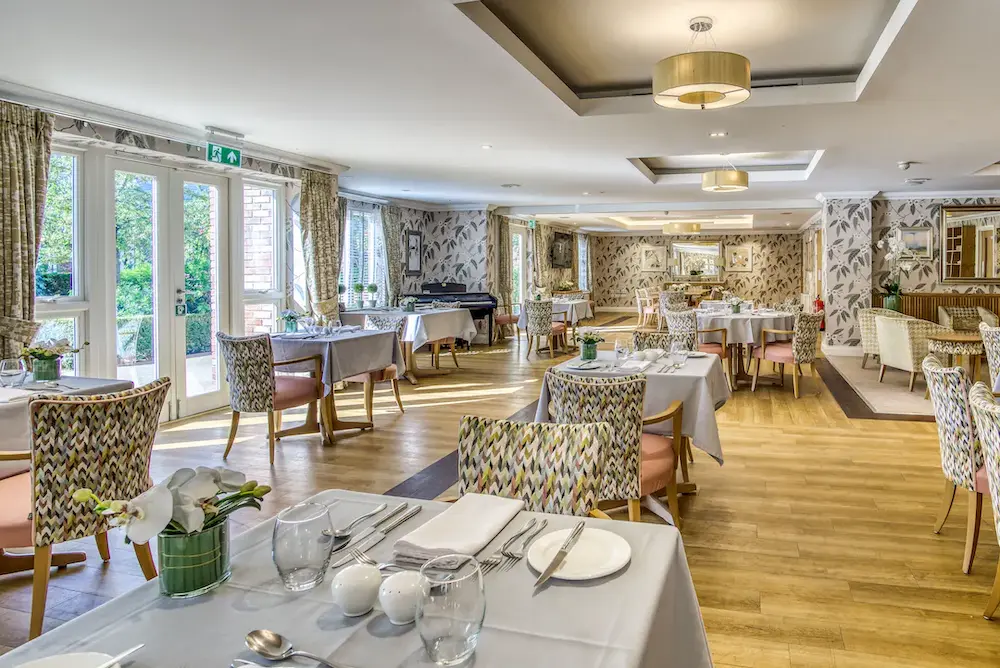
Advantages of Investing in Retirement Homes
Idyllic areas and surroundings - Retirement homes can be found in some of the UK’s most stunning and picturesque areas - many of which are already popular with older adults - including in South West and South East England. Residents can enjoy fewer responsibilities and a slower-paced life with access to National Trust parks and gorgeous coastlines
Social wellbeing - Living in a retirement home opens numerous social avenues. As you get older, you may feel a sense of isolation and begin socialising less in your local community. Through luxury facilities and communal areas, retirement homes give residents numerous opportunities to meet and spend time with one another. Aside from facilities like restaurants, gyms, spas and libraries, some retirement homes will take their residents on outings to explore the local areas while also putting on regular events to socialise with each other
Care is always on hand - While retirees are encouraged to remain independent, retirement homes still offer peace of mind that care is on hand if needed. This is especially reassuring for those who can do most things for themselves, but may require extra support as they get older
Maintain your independence for longer - Retirement homes allow you to stay independent for much longer, as you’ll be comfortable in your own home and surroundings, but you’ll also have access to any personal care support you need
Financial benefits - Even if you don’t feel ready to move into a retirement home just yet, downsizing allows you to distribute your wealth amongst your family. The extra money you’ll be left with will go a long way to covering any other expenses you might have
Disadvantages of Investing in Retirement Homes
Limited locations in the UK - Currently, retirement homes and villages are more common in the south of England but less available in other regions. This is changing for the better though, with more and more retirement homes being developed throughout the UK
Higher purchase price - Though the luxury lifestyle offered by retirement homes is a huge benefit, it does mean they usually end up costing more than a regular property of a similar size. When considering all the additional facilities and services on offer though, you definitely get what you pay for
Additional charges - An extra cost of living in a retirement home is a monthly service charge that covers the upkeep of communal areas, cleaning costs and any building maintenance. However, this takes the pressure off you - and all your surroundings will be kept in a perfect condition
Resale value - Research from the Elderly Accommodation Counsel suggests that around 50% of retirement homes were resold at a loss. Doing some prior research can help avoid this issue, including checking the resale value of retirement homes nearby, and choosing a specialist retirement home seller in your local area
Selling a Retirement Home
The process of selling a retirement property is a little different to that of a regular home. Here’s how you should find a suitable buyer:
Get a valuation - Have a look at sold properties in your area to get an idea of the going rate. If possible, look for properties that have been sold through the same developer. If there are any other retirement homes nearby, resale value may be affected
List with the right agents - There are a number of places you can list a retirement home, including local high street agents and specialist retirement property agents. The latter will likely better understand the target audience and how to best market the property. Some larger firms provide resale schemes that list pre-owned properties and new builds together
Are They a Worthwhile Investment?
Research from The Guardian has found that 12% of those aged over 70 are either considering downsizing their property or have already done so since the pandemic began.
A few things could be causing this. It’s likely that having been living alone for lengthy periods during lockdowns, the excellent social opportunities provided by retirement housing quickly became a much more appealing prospect to older adults.
Will Bax, Chief Executive at Retirement Villages Group, says that downsizing also offers retirees a greater degree of financial freedom, along with the chance to move to a different part of the UK. He says that retirement homes play a huge role in creating later-life communities across the country: “Aspirational, connected, thriving places.”
Data suggests that in terms of property value, retirement properties are a solid investment to give to their family after they’ve passed away. However, some Guardian Money readers have said they’ve found it difficult to sell inherited properties aimed at the retiree demographic.
Inheriting a Retirement Home
Around 70% of retirement homes move from one person to another because of the homeowner passing away. Normally, children - the owner’s next of kin - inherit retirement homes.
There are a couple of things for next of kin to be aware of. Potentially selling the property, insurance and utilities should all be taken into account. Most retirement properties are overseen by a management company, so we’d recommend contacting them as a starting point.
Some non-profit villages like Anchor Hanover might buy the property back. This is doubly convenient for anyone trying to sell. Not only will you save on agent fees, but these non-profit villages are obliged to pay the full market price.
Renting a Retirement Property
Can you rent a retirement home, rather than buy one? Our answer to that is a resounding “Yes”!
Though buying provides you with an asset for the future, renting allows many retirees to afford a luxury lifestyle within a retirement community that they otherwise wouldn’t be able to.
Renting provides flexibility and doesn’t tie you down quite as much, which is why it’s becoming an increasingly popular option in the UK.
If you decide to rent, you should check certain additional retirement home features, including whether or not there’s a guest suite for family and friends and if they’re able to use it.
How To Find an Investment Retirement Property
We list the UK's best luxury retirement homes and similar later-living developments. If you're interested in retirement living, you can use our easy-to-navigate directory to find exactly what you're looking for. To narrow you search, you can apply filters such as the price, the number of bedrooms you require and the facilities you'd like your new home to have.
You can also fill in a simple retirement home shortlist and we'll send you a list of tailored recommendations in your chosen area.
Retirement homes offer secure, vibrant and luxurious housing with state-of-the-art facilities for older adults. Request a free retirement living shortlist and we’ll recommend retirement properties matching your budget, location and desired facilities.

